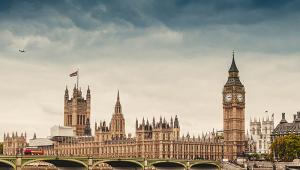Ahead of an expected decision by the Bank of England to cut interest rates today, the think-tank said that monetary action would not be enough to stimulate demand amid worries of a slowdown following the vote to leave the EU.
In a new statement released today, the IPPR has called on chancellor Philip Hammond to support the Bank of England fiscally by increasing spending, which would likely involve abandoning short-term deficit targets set by the previous government. To this end, it advised that spending on investment should be removed from deficit targets.
Moreover, investment spending should be targeted at programmes that boosted productivity across the economy, such as improvement to digital and physical infrastructure, in the form of better broadband connectivity and transport, for example.
Alfie Sterling, IPPR research fellow in economic policy, said: “At this stage, further cuts in interest rates can only get us so far before they fail to boost the economy at all and even start to cause harm.
“Relying on monetary policy alone to keep the economy on track after Brexit is like trying to stay afloat in a storm with one hand tied behind your back.”
Sterling said that spending should be used as a preventative measure to keep the economy moving: “The chancellor has already hinted he will ‘reset’ government spending policy – he must be prepared to do this properly.
“It is not enough to wait for the economy to stall, and then simply borrow more to cover the cost of increased welfare and reduced tax receipts. We need to use government spending as a preventative measure, like interest rates, to keep the economy moving.”
As a next step, the IPPR advised the government to explore the best way to account for investment in human capital. It said that some elements of education, skills and employment could be classified as productivity-boosting investment, and would therefore be fenced-off from the strictures of deficit reduction.
Other suggestions were to review the UK tax base, reconsider the potential for tax rises, and look again at possible income streams from wealth, and the removal of inefficient tax relief programmes.



















